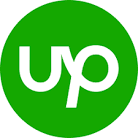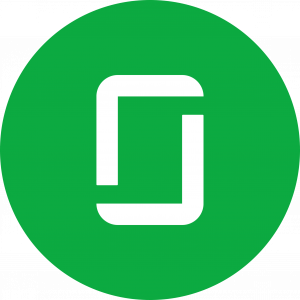In the modern landscape of recruitment, where the initial stages of candidate evaluation increasingly occur through digital channels, mastering the art of the phone interview has become imperative for job seekers. As a critical component of the hiring process, phone interviews serve not only as a preliminary assessment of skills and qualifications but also as a vital opportunity for candidates to demonstrate their communication prowess and cultural fit for the organization. This article delves into strategic methodologies and best practices for excelling in phone interviews. By leveraging psychological insights and effective communication techniques, candidates can enhance their performance, address common pitfalls, and ultimately increase their prospects for advancing to subsequent interview stages. Whether you are a seasoned professional or an emerging talent, understanding the nuances of phone interviewing can be the key to unlocking career opportunities in an increasingly competitive job market.
Table of Contents
- Understanding the Phone Interview Format and Dynamics
- Essential Preparation Techniques for Effective Communication
- Strategies for Building Rapport and Engaging the Interviewer
- Post-Interview Follow-Up: Best Practices for Maintaining Professional Relationships
- Future Outlook
Understanding the Phone Interview Format and Dynamics
Phone interviews have become an essential part of the recruitment process, serving as a preliminary screening tool before candidates are invited for in-person meetings. Understanding the dynamics of this format is crucial for candidates. Typically, a phone interview lasts between 15 to 30 minutes, and it often involves a single interviewer from the hiring team. You might encounter structured formats, where the interviewer follows a predefined set of questions, or unstructured formats that allow for a more conversational approach. The lack of visual cues can make it challenging, so candidates must focus on articulation and clarity to convey their qualifications effectively.
To prepare for a phone interview, consider exploring the following strategies:
- Research the Company: Familiarize yourself with the company’s mission, values, and recent news.
- Prepare Your Environment: Choose a quiet, distraction-free space to take the call.
- Practice Common Questions: Rehearse answers to frequently asked questions to boost your confidence.
- Take Notes: Keep a copy of your resume and notes about the company handy for reference.
Moreover, it’s beneficial to understand the interviewer’s perspective. Here’s a concise table contrasting the interviewer’s priorities during a phone interview:
| Key Focus Areas | Importance |
|---|---|
| Communication Skills | High |
| Relevance of Experience | Very High |
| Cultural Fit | Moderate |
| Enthusiasm and Engagement | High |
By aligning your preparation with these focus areas, candidates can significantly enhance their chances of making a strong impression during the phone interview.
Essential Preparation Techniques for Effective Communication
To ensure a successful phone interview, meticulous preparation is key. Start by familiarizing yourself with the job description and the company’s mission, values, and recent news. This knowledge will not only demonstrate your interest but also allow you to tailor your responses effectively. Create a cheat sheet that includes key points about your skills and experiences relevant to the role, as well as thoughtful questions to ask the interviewer. Organizing this information visually can be beneficial, so consider using bullet points:
- Understand the Role: Identify required skills and responsibilities.
- Research the Company: Learn about its culture and recent developments.
- Prepare Your Questions: Show engagement by asking insightful questions.
Additionally, setting up your environment plays a crucial role during the interview. Choose a quiet location, free from distractions, and ensure your phone is fully charged. Test your phone’s audio quality beforehand to avoid technical issues. Plan your scheduling around peak performance times, ideally when you feel most alert. A table can help clarify your preparation timeline:
| Preparation Task | Time Allocation |
|---|---|
| Research Company & Role | 1 hour |
| Prepare Key Points & Questions | 30 minutes |
| Set Up Interview Space | 15 minutes |
| Practice Mock Interview | 30 minutes |
Strategies for Building Rapport and Engaging the Interviewer
Creating a connection with the interviewer is pivotal for a successful phone interview. To establish rapport, start by demonstrating active listening. This can be achieved through techniques such as reflecting back or summarizing key points the interviewer shares, which not only shows your engagement but also provides an opportunity for clarification. Additionally, utilizing a warm and enthusiastic tone can effectively convey your interest in the role and the organization, further enhancing the interpersonal connection.
Another effective strategy is to find common ground early in the conversation. Research the interviewer’s background or the company culture beforehand, and consider mentioning shared interests, which can help to create a more relaxed atmosphere. Incorporating small talk at appropriate moments can also assist in building a connection. Here are some key tips to remember:
- Use the interviewer’s name throughout the conversation.
- Incorporate positive affirmations during discussions of their company and team culture.
- Ask insightful questions that demonstrate your knowledge and genuine curiosity about the role.
Post-Interview Follow-Up: Best Practices for Maintaining Professional Relationships
Post-interview follow-ups are vital in nurturing your professional network and demonstrating your continued interest in the role. Sending a follow-up email within 24 hours is considered best practice, as it keeps you fresh in the interviewer’s mind. In your message, it’s essential to express gratitude for the opportunity, highlight key discussion points, and re-emphasize your enthusiasm for the position. Utilize this as a chance to address any topics you feel weren’t fully covered during the interview, showing your proactive engagement and commitment.
To maintain a lasting professional relationship, consider the following strategies:
- Customize your message: Tailor each follow-up based on your conversation, reflecting on specifics that align with the company’s values.
- Share valuable content: If there’s an article or resource relevant to your discussion, consider including it in your follow-up to add value.
- Connect on LinkedIn: After your follow-up, send a connection request on LinkedIn, including a personalized note referencing your interview.
| Follow-Up Action | Purpose |
|---|---|
| Thank You Email | Express gratitude and maintain engagement |
| Resources Sharing | Provide additional value and insight |
| LinkedIn Connection | Expand professional network |
Future Outlook
mastering the intricacies of phone interviews is essential for candidates striving to excel in today’s competitive job market. By employing strategic preparation techniques, actively engaging with interviewers, and utilizing effective communication skills, candidates can significantly enhance their performance and leave a positive impression. Remember to approach each phone interview as a critical opportunity to showcase not only your qualifications but also your enthusiasm for the role and the organization. Continuous refinement of these strategies, coupled with regular practice, can lead to greater confidence and success in securing the positions you desire. As the landscape of recruitment continues to evolve, embracing these strategies will undoubtedly position you as a formidable contender in any industry. Let your next phone interview be not just an assessment, but a robust platform to demonstrate your professional prowess.






